People
Early Stage Researchers / PhD fellows

Stewart Motta
Vrije Universiteit Amsterdam
More
Stew is based at the IVM Institute for Environmental Studies conducting research on hydropolitics in the Mekong Region. The ESR1 research focuses on shared and contested river systems and how human and non-human interventions impact these hydrosocial landscapes. Stew worked in the region for over a decade supporting research initiatives through the CGIAR's Water, Land, and Ecosystems (WLE) Greater Mekong Program and the Mekong Region Futures Initiative. Stew has an MSc in Water Science Policy and Management from the University of Oxford, a Bachelors in Chinese Studies from The Colorado College, and studied Mandarin at the Beijing Institute of Education. Stew is excited for the opportunity to pursue a Ph.D. and hopes the NEWAVE experience enables him to support and contribute to knowledge production on water governance in Myanmar.
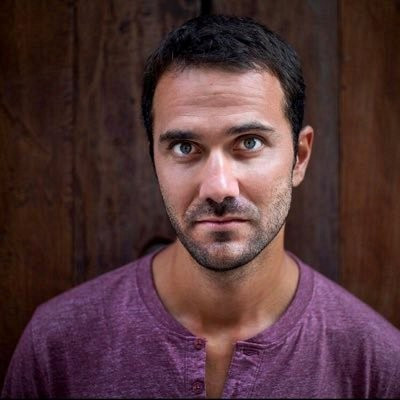
Javier Rodríguez Ros
Institut de Recherche pour le Developpement (IRD)
More
Javier is a Ph.D. candidate in the Group of Water Management, Actors, and Uses (G-EAU) at the Institute of Research for the Development (IRD). Throughout his career, he has worked and collaborated with different NGOs and research centers in Latin America and Africa exploring water governance and its impacts on society and ecosystems. In his research, he will examine the shifting policies and strategies that determine how and what solutions are proposed, financed, implemented, and managed to respond to water challenges in the Segura and the Tagus River Basins in Spain. This research links with and informs wider studies and frameworks on river basin and multilevel governance, and on the political ecology of river basin development. You can read more about his professional experiences on his website www.waterstories.es
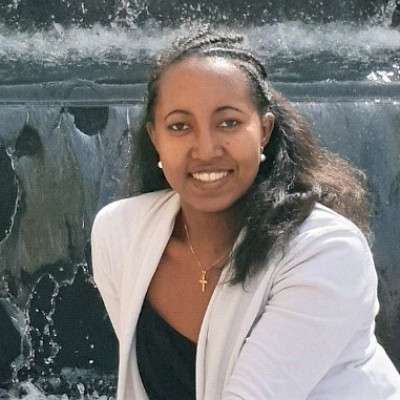
Sinafekesh Girma Wolde
Politecnico di Milano
More
Sinafekesh is a Junior Integrated Water Resource Manager; Civil Engineer specialized in holistic research development and implementation. She is an early career researcher experienced in the areas of sustainable natural resources management, DAFNE approach for management of land, water, energy, and climate nexus, agricultural water use efficiency in rainfed and irrigated schemes, remote sensing data analysis, water scarcity, integrated planning for climate change, and biodiversity, science communication skills for water cooperation and diplomacy, transboundary watershed inventory, small to large scale rainwater harvesting systems, water resource management, sustainable development goals, project planning, monitoring and evaluation, and WASH.
She is currently a Ph.D. research fellow in the Department of Civil and Environmental Engineering at the Politecnico di Milano university. Her research focuses on identifying the role of extreme hydrological events in human migration and understanding the possible future migration patterns in Ethiopia, Kenya, Somalia, Tanzania, and Rwanda. The research aims to identify the drivers of migration and assess the level of water scarcity in the above countries. She has a strong background in leadership, communication, organization, community mobilization, and project management from her work with pastoralist communities in Kenya, civil war refugees from South Sudan, and voluntary work with local and international organizations in Ethiopia and Kenya. She also contributed to the publication of the UN Environment's GEO-6 for Youth in Africa and the smart water management case study by the IWRA.
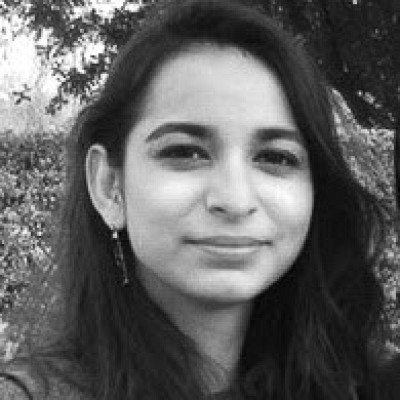
Radhika Singh
University of Nairobi
More
Radhika is a recent graduate from MIT, where she studied urban and regional planning. Her research over the last two years has focused on water provision and management, particularly in arid areas. She recently co-authored a book, Along the Betwa: A Riverwalk through the Drought-Prone Region of Bundelkhand, India, which will be published in September 2021. Before her master's degree, Radhika worked as a correspondent for The Indian Express in Mumbai and as a project manager for the urban planning organisation INHAF in Ahmedabad.
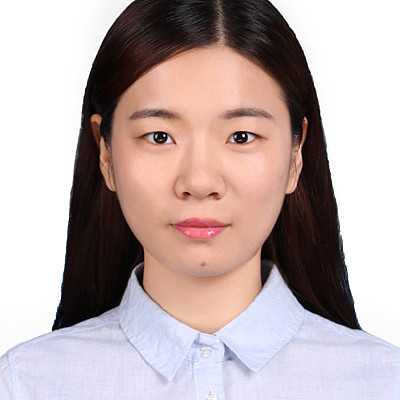
Wenjin Hao
Politecnico di Milano
More
Wenjin was born in 1995, in China. She graduated from Southeast University one of the leading universities in China for her bachelor degree of Water and Wastewater Engineering in 2017. Then she obtained her master degree of Environmental Engineering in ETH Zurich in 2020. Currently she is a PhD student in the Environmental Intelligence lab in Politecnico di Milano. Her research interests include urban water demand modelling, machine learning applications in water management, smart water, strategy development for sustainable water demand management. As a member in the NEWAVE project, she will contribute to identify the major urban water demand across multiple spatio-temporal scales in European countries, build enhanced models to find key drivers of specific demand and support policy making.
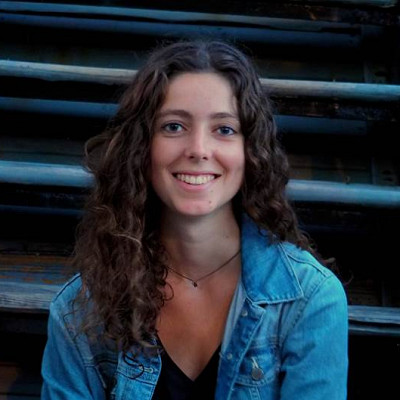
Nina Valin
Vrije Universiteit Amsterdam
More
Nina will be working on the research project ‘’The European Union as an innovator in water governance paradigms’’ (ESR 6), based at the Institute for Environmental Studies (Vrije Universiteit, Amsterdam). She has a dual background in social and natural sciences, after she specialized in both public policies at Sciences Po Paris and in environmental sciences at AgroParisTech during her master studies. Her recent experiences as an intern within the global organization Future Earth and previously as an attaché for environmental affairs at the French Embassy in Sweden also added to her strong interest for the science-policy interface. During her PhD project, she wants to address in particular the role of the interplay between experts, researchers, policy makers and civil society on policy intervention on water systems.

Paula Zuluaga Guerra
Fundación Nueva Cultura del Agua (FNCA)
More
Paula decided to study ecology for she believed it would allow her to explore the relationship between people and nature through the exploration of the ecological intricacies of one of the most biodiverse countries in the world. Indeed, during her BSc at the Pontificia Universidad Javeriana Paula was able to learn about the Páramos, the Andean tropical dry forests, and the rainforests in the Northeast of the Colombian Amazon. But the lessons were much more complex than she originally thought. For the first time in her life, Paula realised that gender matters. To her, it implied managing difficult working relations and surpassing practical obstacles in the field, but for other women, it often meant existential nullity. Also, she realised that participation, as a space for horizontal dialogue, is more an aspiration than a concrete possibility when working in contexts of conflict and profound societal inequalities.
After seven years of professional practice in Colombia, and a MSc in Global Environmental Politics and Society at the Edinburgh University, the main motivation behind Paula's work is to revise those early learnings, so she can use her relatively advantaged position to conduct a form of research that could plant the seed for transformative change. Becoming part of NEWAVE is a means to do this. Paula is excited by the opportunity to lead a research with Fundación Nueva Cultura del Agua on the co-production of knowledge in the “Mar Menor Lagoon” in Murcia, Spain. Within this project they will be rethinking participation at least in two ways: together with social actors they will co-design computational models and co-create innovative ways to bridge science and policy-making; and expand the knowledge around the governance of aquatic socio-ecosystems by disentangling the relationship between water and land politics that shape them.
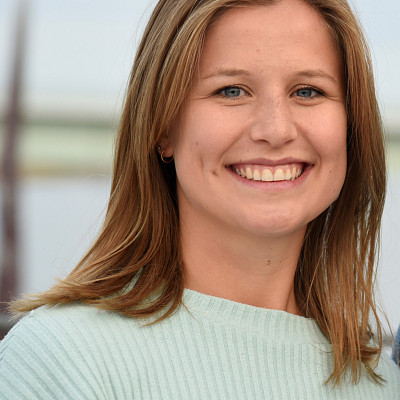
Hannah Porada
Universiteit van Amsterdam
More
Hannah Porada is a PhD candidate at the University of Amsterdam, based at the Centre for Latin American Research and Documentation. As an Early Stage Researcher with NEWAVE her research engages with the water mining nexus in The Netherlands and Guatemala. Hannah holds a MSc in Global Development from the University of Copenhagen, Denmark, and a BA in Economics and Political Science from the University of Münster, Germany. Before starting her PhD, Hannah conducted research on coal mining and mining-induced resettlements in the Rhineland, Germany. She also worked in international development cooperation and humanitarian action.
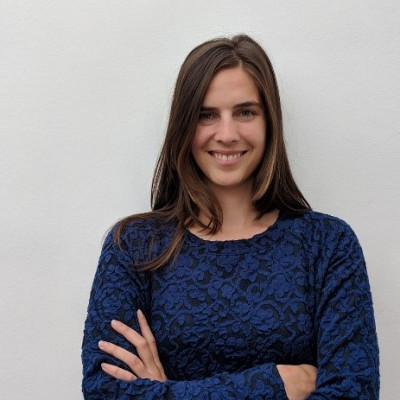
Alejandra Burchard Levine
ARCADIS
More
Alejandra is a Canadian born Spanish and Chilean Chemical Engineer (McGill University - Canada) with a Masters in Environmental Science and Engineering (Tsinghua University - China). She has over 8 years of global experience in Africa, Asia, Latin America, and Europe managing international cooperation projects in the water sector. She has worked for a wide range of industrial, government, non-profit, and consultancy partners such as Veolia, Suez, GFA Consulting Group GmbH, UNICEF, UNESCO, KfW, GIZ, IADB, LuxDev, Waterlution, among others.
She is a high-energy multidisciplinary professional bringing a multi-faceted angle including engineering, research, multi-stakeholder facilitation, and project management, as well as communication and creative content development. She enjoys photography, film-making and had the opportunity to direct a short GIZ-funded video in 2019 on “Enhancing skills for water and sanitation services in Uganda”.
She is now based in Amsterdam, The Netherlands, working as an Early Stage Researcher (ESR) hosted by Arcadis – The Netherlands and pursuing a Ph.D. at Vrije Universiteit Amsterdam on Water Governance. She is part of NEWAVE and working on Project nr. 9 on “Consultancy firms and the circulation of policy paradigms: roles, responsibilities, and impacts”.
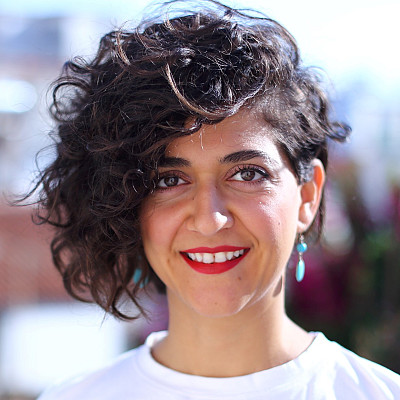
Dona Geagea
Vrije Universiteit Amsterdam
More
Dona’s experience encompasses ten years of professional work in the water sector as a facilitator and stakeholder engagement specialist, and until November 2020 as Global Lead for the Water Innovation Labs with Waterlution. In this position, Dona contributed to the design and delivery of social innovation labs with a focus on water knowledge-mobilization and building the capacity of emerging leaders to solve water challenges through cross-disciplinary and cross-sector collaboration. Under her leadership over 500 young leaders across 4 continents have been trained in this immersive program, and she has supported 25+ teams to develop their innovation projects. Dona spearheaded the delivery of these innovation labs in India, the Netherlands and Portugal (in 2017), Australia (2018), Canada (2018) Lebanon and Mexico (2019 and 2020). Dona has also organized and moderated several workshops including at prominent water forums such as the Budapest Water Summit, 7th and 8th World Water Forums in South Korea and Brasil, Singapore International Water Week; and with GIZ’s Partnership on Climate Transparency. She holds a Master in Globalisation Studies from McMaster University, a Joint Graduate Diploma in the Water Without Borders program at United Nations University - Institute for Water, Environment and Health, and a Bachelor in Political Science from York University. Her fascination with systems-thinking, systemic change and innovation in water governance led her to now be an Early Stage Researcher (PhD) with NEWAVE - Next Water Governance, an EU funded Marie-Curie Innovative Training Network hosted at Institute for Environmental Studies (IVM) at Vrije Universiteit Amsterdam. Her research is on emerging re-commoning water governance practices as a response to austerity crises. Dona is also the recipient of the Rotary Foundation Global Scholar Grant (2020) and an Aura Fellow, selected as one of ten women for Be the Earth Foundation's Aura Fellowship program (2020-2022).
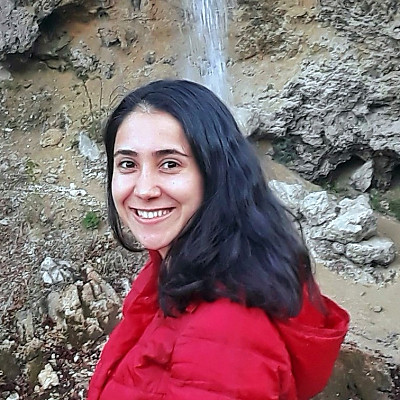
Shahana Bilalova
Leuphana Universität Lüneburg
More
Having an interdisciplinary background, Shahana holds a BA degree in International Studies from ADA University and an MSc degree in Environmental Sciences and Policy from Central European University. Prior to joining NEWAVE, she was a research assistant in the Caspian Center for Energy and Environment at ADA University in Azerbaijan, where she was mainly responsible for the collection and analysis of data for writing monthly policy briefs related to energy and environmental issues in the wider Caspian region. Previously, Shahana has also worked in several development agencies (UNDP and GIZ) and a consulting firm (Ernst & Young) on environment-related matters. Having a chance to work in diverse settings and with various stakeholders allowed her to better comprehend mechanisms of the science-policy-society interface and effective communication, along with equipping her with critical skills of approaching an issue from both academic and practitioner prisms.
Throughout the NEWAVE journey, Shahana will explore how diverse water governance systems perform in terms of water-related sustainability. Since her primary research interest lies in the area of water resources governance, she considers this project as a starting point for her long-term research goal of enhancing water governance paradigms beyond the water-centric perspective while contributing towards filling the gaps in existing knowledge within broader water governance discourse.
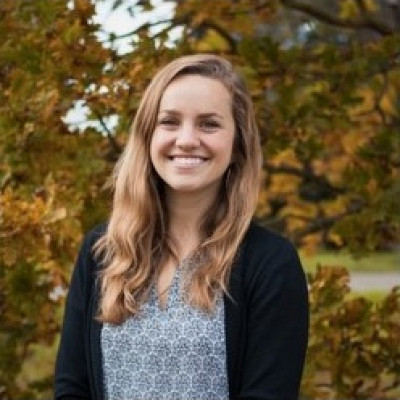
Gina Gilson
University of Oxford
More
Gina is studying the governance of informal water markets in East Africa, with a particular focus on property rights, collective action, and resource sustainability. She has a BS in Environmental Science and Biology from Creighton University and an MSc in Biodiversity, Conservation, and Management from the University of Oxford. Originally from Nebraska, she has lived and worked in the western United States, Costa Rica, and Austria.

Marie Belland
Universiteit van Amsterdam
More
Marie Belland started her PhD at the University of Amsterdam Department of Human Geography, Urban Planning and International Development Studies in November 2020 with the Marie Skłodowska-Curie Innovative Training Networks (ITN) NEWAVE program. Within the program, she is focussing on “Integrating patterns of urban water governance in Southeast Asia” (ESR 13). More specifically, her research will investigate water governance in the city of Semarang (Central Java, Indonesia) through the exploration of on-grid and off-grid water access modalities.
Marie holds a Master’s degree in international cooperation and development from the Toulouse Institute of Political Studies. She is passionate about exploring environmental issues in cities. She has worked for two years in the field of scientific cooperation and has conducted research in Ivory Coast, Indonesia and France. Her research topics have included investigating the experience of air pollution, conflicts and mediation around water and the development of rooftop urban agriculture.
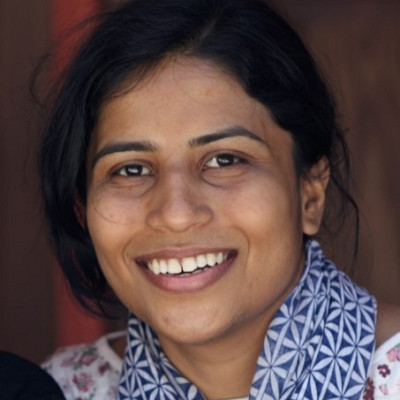
Preeta Dhar
School of Oriental and African Studies (SOAS)
More
Preeta is a doctoral candidate at SOAS University of London. She has trained and worked as a lawyer and policy researcher in India. She is interested in examining the complexities of governance and policy processes around natural resource governance. She is passionate about environmental rights, ecological justice and participatory governance.
Her practice includes working on environmental litigations before the Supreme Court and the National Green Tribunal, working as a Parliamentary research Assistant and teaching at the School of Law, Environment and Planning at the Srishti Institute of Art Design and Technology. She has also worked on and coordinated research projects on transboundary water governance and coastal area management. Through her work, she looks at the interconnections of different practices and perspectives within the policy framework.
She holds a B.A.LL.B. (Hons.) from the National Law School of India University, Bangalore and has completed her LL.M. in Law and Development from the Azim Premji University, Bangalore.
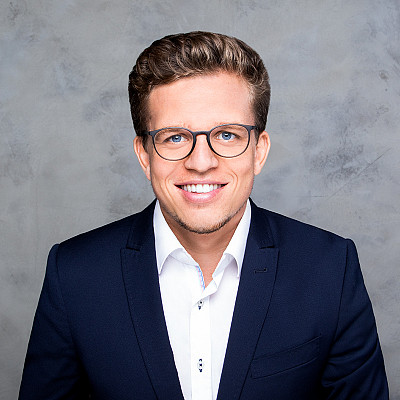
Johannes Wagner
University of Oxford
More
Johannes Wagner's research examines the sustainability of rural water services in Sub-Saharan Africa to attract non-traditional funding. His field-based study focuses on understanding how rural consumers pay for water across service delivery models, payment methods, and political spaces using both qualitative and quantitative methods. His work will contribute to global knowledge on performance-based models for reliable rural water services.
Prior to joining the NEWAVE-network, Johannes worked for four years as a policy advisor on behalf of the German Development Cooperation (GIZ) for the sustainable development of the water and sanitation sector in Mali. His work focused mainly on sector steering, pro-poor regulation and performance monitoring mechanisms as well as drinking water quality by ensuring capacity development of public, private sector and civil society actors. He holds a binational MA and BA in Empirical Political and Social Sciences from the University of Stuttgart and Sciences Po Bordeaux.



